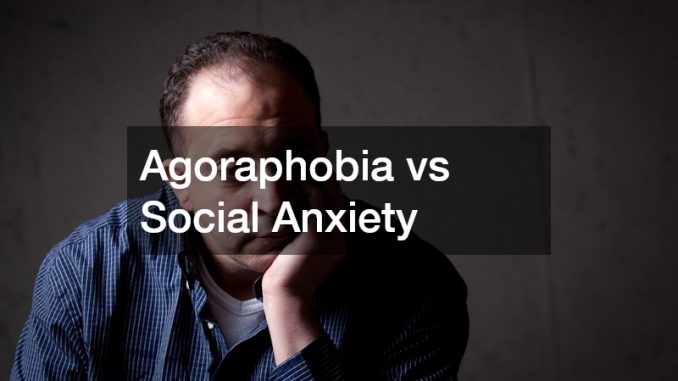

Anxiety disorders are among the most common mental health issues, affecting millions of people worldwide. Two disorders that are often confused or misunderstood are agoraphobia and social anxiety. While they share some similarities, they are distinct conditions with different triggers and impacts on daily life. Understanding the differences between agoraphobia vs social anxiety is essential for identifying the right treatment approach. Here’s a closer look at these two disorders.
What Is Agoraphobia?
Agoraphobia is an anxiety disorder characterized by an intense fear of being in situations where escape might be difficult, or help might not be available in the event of a panic attack or overwhelming anxiety. People with agoraphobia often avoid places like crowded spaces, public transportation, open areas, or even leaving their home altogether. The fear is not necessarily about the place itself but about the possibility of experiencing panic or losing control in those situations.
Agoraphobia can severely restrict a person’s life, leading to isolation and dependency on others. The condition often develops as a result of panic disorder, where recurrent panic attacks create a fear of situations that might trigger another attack. Treatment for agoraphobia typically involves cognitive-behavioral therapy (CBT) and medication to manage anxiety symptoms and gradually expose the person to feared situations.
What Is Social Anxiety?
Social anxiety disorder, also known as social phobia, is characterized by an intense fear of social situations where the person may be judged, embarrassed, or scrutinized by others. Unlike agoraphobia, the fear in social anxiety is specifically related to interactions with people rather than the environment. Common triggers for social anxiety include public speaking, meeting new people, eating in public, or any situation where the person feels they might be negatively evaluated.
People with social anxiety often avoid social situations or endure them with great distress. This can impact their personal and professional lives, leading to isolation, low self-esteem, and difficulty forming relationships. Treatment for social anxiety often involves therapy, particularly CBT, to help individuals challenge and change their negative thought patterns. Medication may also be prescribed to manage symptoms.
Key Differences Between Agoraphobia and Social Anxiety
When comparing agoraphobia vs social anxiety, the key difference lies in the source of fear. Agoraphobia is primarily concerned with being in situations where escape is difficult or help is unavailable, often due to the fear of having a panic attack. Social anxiety, on the other hand, is focused on the fear of being judged or embarrassed in social interactions.
Another difference is the range of situations that trigger anxiety. Agoraphobia can involve a broad range of environments, from crowded places to open spaces, while social anxiety is specifically tied to social situations.
.
